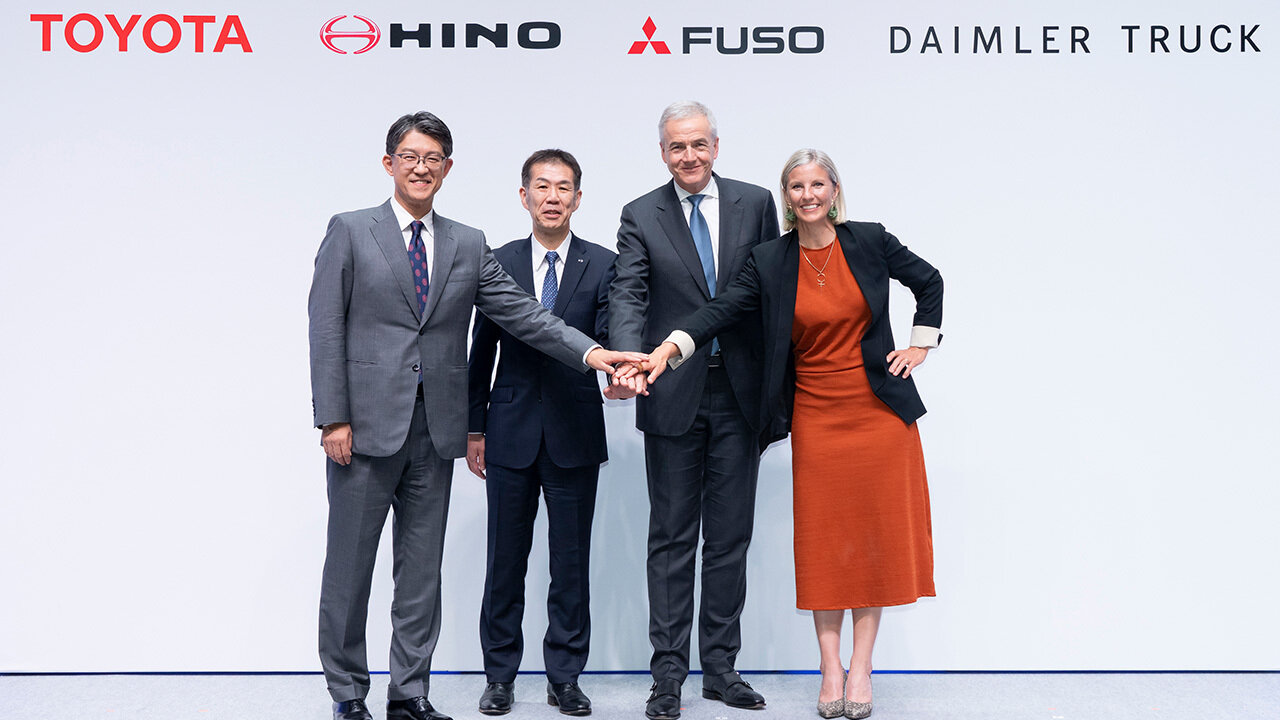
Having agreed to merge, on June 10, Hino Motors and Mitsubishi Fuso Truck and Bus, along with their parent companies Daimler Truck and Toyota Motor Corporation, signed definitive agreements regarding their business integration. The four companies are entering a new stage on their way to creating the future of commercial vehicles.

On June 10, definitive agreements were concluded for the integration of Mitsubishi Fuso Truck and Bus (Mitsubishi Fuso) and Hino Motors (Hino).
The two commercial vehicle giants signed initial agreements in May 2023, aiming to complete the merger the following year. However, the process was delayed by various factors, including certification issues at Hino.
This integration will strengthen the companies’ technological development and business foundations in areas related to commercial vehicles, such as development, procurement, and production.
As part of the move, a holding company will be established, with Mitsubishi Fuso and Hino as wholly owned subsidiaries. Daimler Truck and Toyota will each hold a 25% stake.
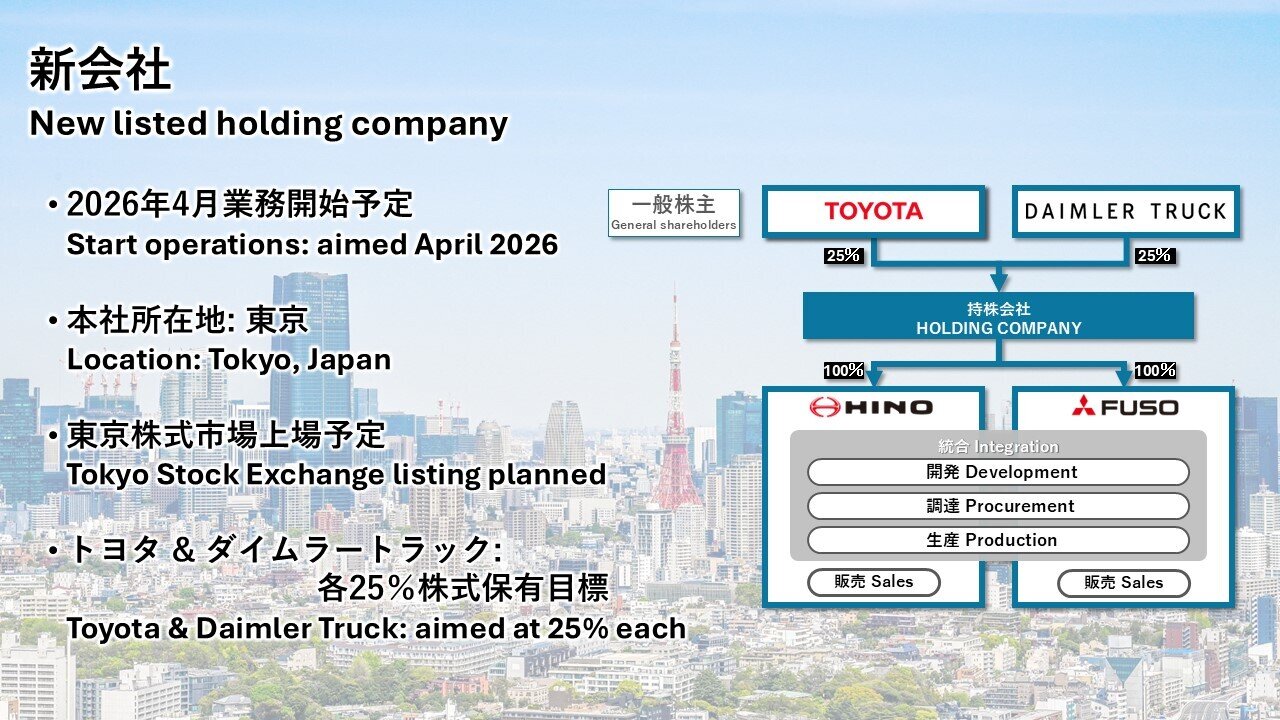
Mitsubishi Fuso CEO Karl Deppen will serve as CEO of the holding company, which will be based in Tokyo and begin operations in April 2026. Details such as the new company’s name and management team will be announced before that date.
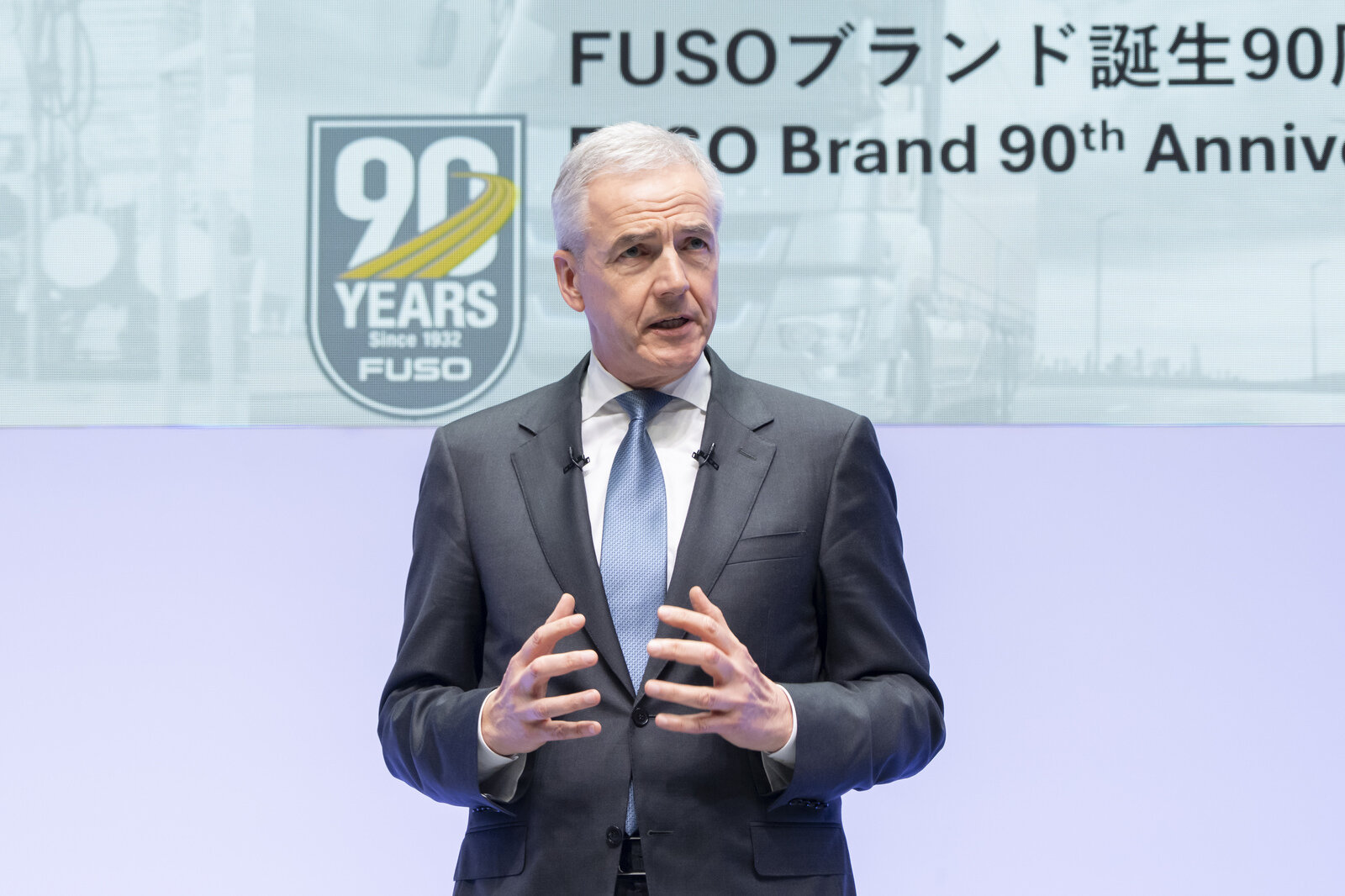
At the press conference, CEO Deppen expressed his resolve to see the merger succeed, saying, “I have been convinced that this cooperation is for the good of all our stakeholders. With this, we will make the Hino and Fuso brands even stronger. To build and lead this new company is for me a tremendous honor - and even more so, it is an obligation and motivation to make it a success.”
President Satoshi Ogiso of Hino echoed his sentiments. “As a new commercial vehicle company rooted in Japan, we will work together to create an ever-better future.”
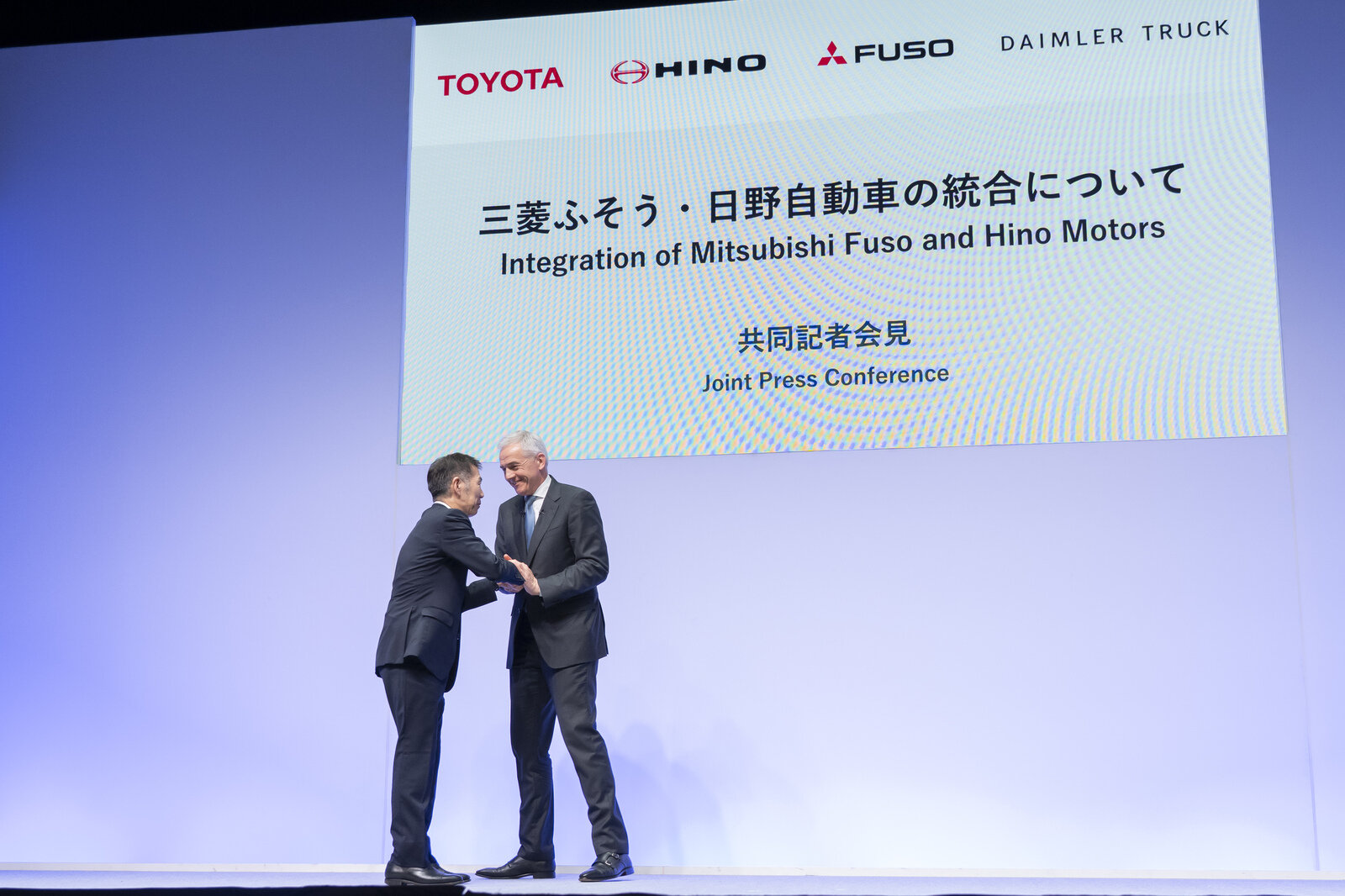
Last to take the stage was President Koji Sato, who reflected on how the collaboration had come to be while outlining the shared aspirations of the four companies.
“A shared desire to create the future of commercial vehicles”
President Sato (Toyota)
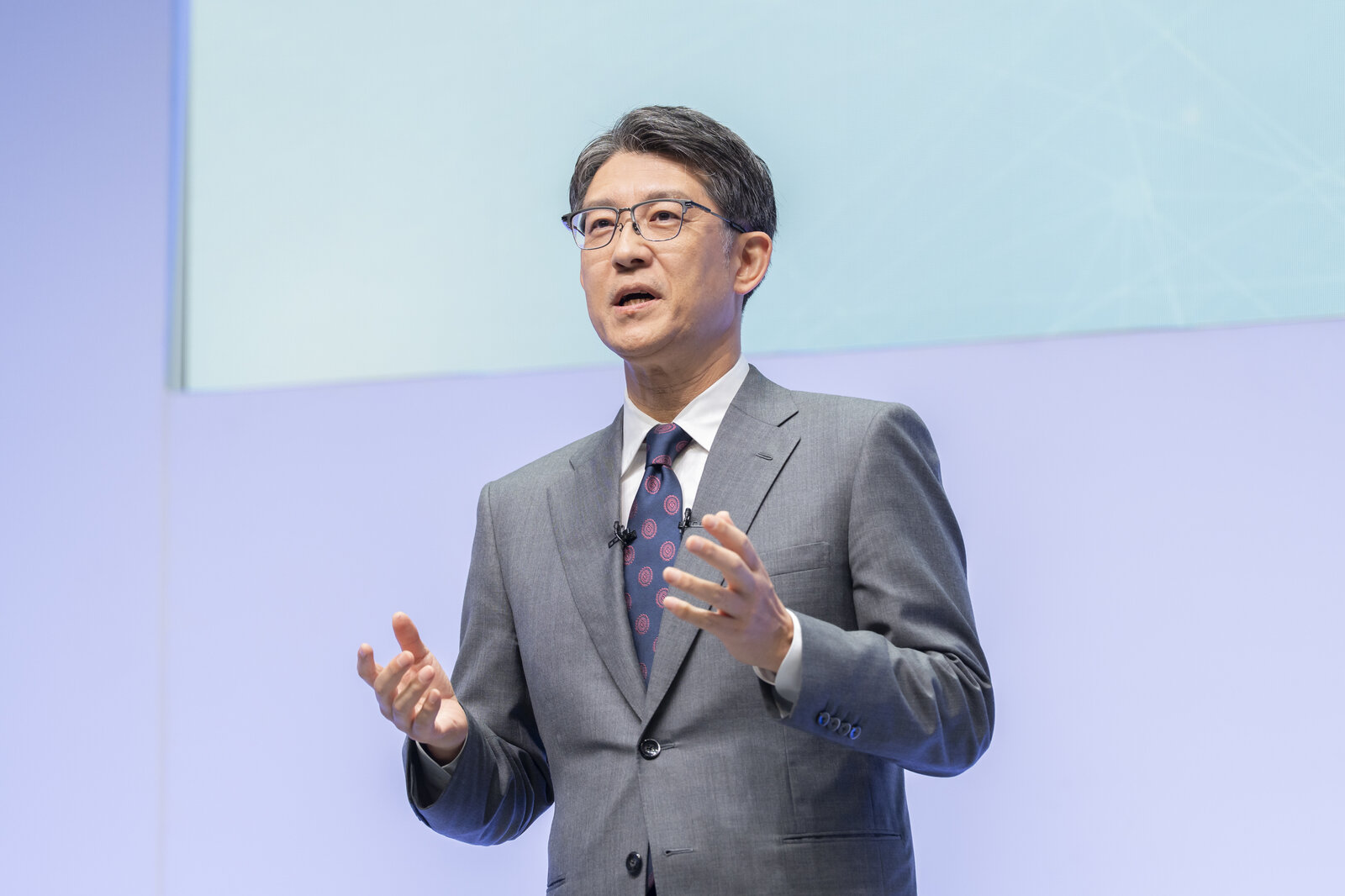
While briefly looking back on how we came to consider this collaboration, I would like to talk about our four companies' shared desire.
The starting point of this collaboration is the shared desire to create the future of commercial vehicles together, by leveraging the strengths of Mitsubishi Fuso and Hino to protect our business foundations in Japan and Asia.
Two and a half years ago, Daimler Truck’s then-CEO Martin Daum and Toyota’s then-President Akio Toyoda began this collaboration based on a shared vision and sense of values.
Companies with different histories and cultures coming together like this meant we needed to overcome various challenges.
Although there were times when differences in ideas on how to move forward with integration were hard to bridge, our four companies took the time to repeatedly engage in dialogue and deepen mutual understanding, driven by the empathy and trust shared by the leaders.
I believe that our unwavering commitment to the future of commercial vehicles enabled us to overcome difficulties and keep moving forward toward integration.
In the course of our discussions, Daimler Truck CEO Karin Rådström shared the following thoughts.
Daimler Truck values being a company rooted in the local community. The integrated company should be a truly global company rooted in Japan.
I couldn't have agreed more.
Mr. Deppen, who will head the integrated company, is the right person to lead a truly global company rooted in Japan.
He has been involved in the Japanese truck industry for more than 20 years and has extensive global experience.
Under Mr. Deppen's leadership, I believe that Mitsubishi Fuso and Hino will be able to create synergies through this integration, while honing the manufacturing capabilities that both have cultivated as truck manufacturers.
This integration will not only secure the scale needed to compete globally, but also bring the strengths of Mitsubishi Fuso and Hino together to expand their respective areas of expertise, accelerating technological development and increasing production efficiencies.
Going forward, the two companies will work together to strengthen their business bases in Japan and Asia, and Daimler Truck and Toyota will support the integrated company in improving its competitiveness, based on CASE (Connected, Autonomous, Shared, Electric) technologies.
Also, we would like to apply our four-company framework to accelerate the implementation of CASE technologies toward solving social issues surrounding commercial vehicles, including achieving carbon neutrality.

